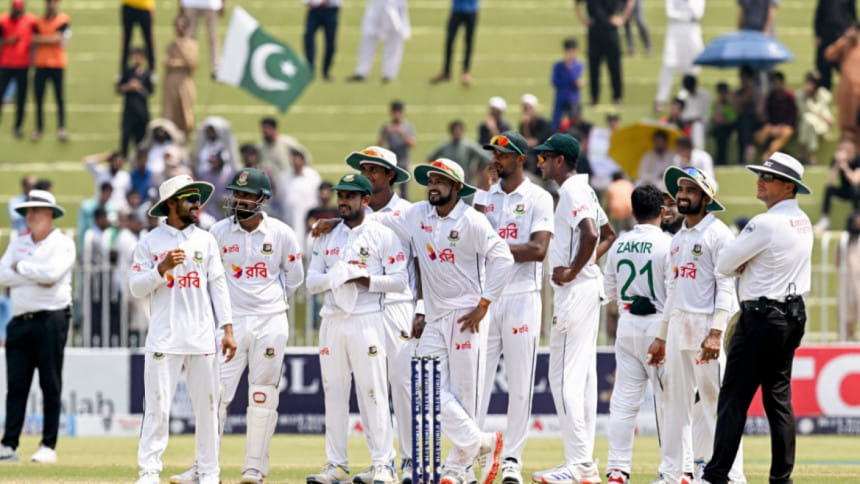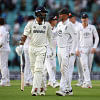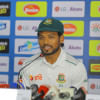Bangladesh’s Rawalpindi Test win provides some much-needed room for reflection

As Zakir Hasan and Shadman Islam worked away at the measly 30-run target set by Pakistan in the final day of the Rawalpindi Test, the excitement in the voice of Athar Ali Khan—Bangladesh's sole representative in the commentary box—was apparent. He said something to the effect of there being celebration on the streets once the win is confirmed, and I remember wondering if that would really be the case this time around.
There is no doubt in the cricketing significance of this achievement. Athar Ali Khan's excitement was justified, because Bangladesh have only ever won eight Test matches away from home. Excluding wins against Zimbabwe and the second-string West Indies side in 2009, this is only the third team of note that Bangladesh have beaten in away conditions. Pakistan are far from the best Test side in the world right now, but in previous 13 attempts, Bangladesh had lost 12 and drawn only once. It is a massive moment for Bangladesh cricket.
But there is a good reason for Athar Ali Khan's prediction of mass celebrations to not materialise. If sports is only interesting for the compelling qualities of the stories it tells, then context is everything. And for cricket in Bangladesh, the context right now is tumultuous at best, and grim if we are being honest.
The July Uprising, which culminated on August 5 with the end of the Sheikh Hasina regime, has turned many established norms and systems in Bangladesh upside down. It's possibly a testament to the extent of how intertwined the previous regime had made itself to every facet of life in the country that the cricket board too found itself directionless after the upheaval. In fact, three members of parliament for the ruling party were directly involved in the cricket scene, all of whose fortunes are now up in the air. The MP who had been board president for over a decade has absconded, the MP who is a celebrated former captain saw his house torched and is now dealing with the consequences of his conspicuous silence as the nation burned, and the MP who is an active national team player is facing murder charges, which, however dubious, is a direct result of him being involved in an authoritarian government.
The fact that former Bangladesh Cricket Board (BCB) President Nazmul Hassan Papon resigned on the first day of this Test match and that a murder case was filed on the second day against Shakib Al Hasan, who took three wickets in the game, made this achievement for the Test side all the more challenging. Yet, it was sobering to see that there was no deluge of congratulations coming from political leaders, the chief adviser's office or the president's. No one went above and beyond to celebrate the win; no land was gifted to the players. The reaction to this was reflective of the collective headspace our country is in right now—one that can't occupy itself too much with cricket.
But this remarkable win has opened the window of opportunity to talk about cricket during this difficult time. Cricket, despite being just a sport, has contributed to some of the best moments in our recent national history and remains highly popular among the masses. Doing well by cricket is something that will be expected of whichever administration is in charge. The win in Rawalpindi gives us the scope to discuss how this will be made possible.
The first order of business has to be to depoliticise cricket. While this may seem like a task as simple as telling cricketers and administrators to not involve themselves in politics, that would be infringing upon the rights of citizens. However, looking at the root of political influence in cricket administration, and in most other sports in Bangladesh, there is a more effective way to combat it.
A big part of how sports governing bodies in Bangladesh are set up is by allowing various sporting clubs in the country to nominate board members. While that is a standard practice across the world, keeping tabs on which clubs get to nominate board members remains crucial. For example, if the clubs who get to be a part of this process at BCB are mainly from Dhaka, then the BCB will never truly be representative of the interests of cricket players and fans across the country. If certain political parties are allowed to find ways to take control of the clubs whose nominees make up sports governing bodies, politics will always be a part of sports in this country.
Keeping these sports clubs clear of political influence will be a monumental task. Empowering communities and experienced sports organisers—and not politicians—to take control of clubs will be key to ensuring that not only cricket, but other sports too can begin to espouse fair competition in an environment where high performance athletes can flourish.
Of course, there's a lot more to do as well. Life needs to be breathed back into domestic cricket. The cleaning up of clubs must be followed up by ensuring fair umpiring and sporting conditions to play in, and academies need to be set up for players to train in and become professionals who can make a living by playing in the domestic circuit. Only by making certain that the basis of domestic cricket is strong can we even begin to think about a world-beating national side.
And yes, we can have a national cricket team who can do it all. The win in Rawalpindi is an indication of it. The rare occasions of remarkable success that Bangladesh cricket has experienced in the past is proof of it. In today's environment of newfound opportunities to rebuild our country, maybe we can rebuild cricket too.
Azmin Azran is digital features coordinator at The Daily Star.
Views expressed in this article are the author's own.
Follow The Daily Star Opinion on Facebook for the latest opinions, commentaries and analyses by experts and professionals. To contribute your article or letter to The Daily Star Opinion, see our guidelines for submission.

 For all latest news, follow The Daily Star's Google News channel.
For all latest news, follow The Daily Star's Google News channel. 









Comments